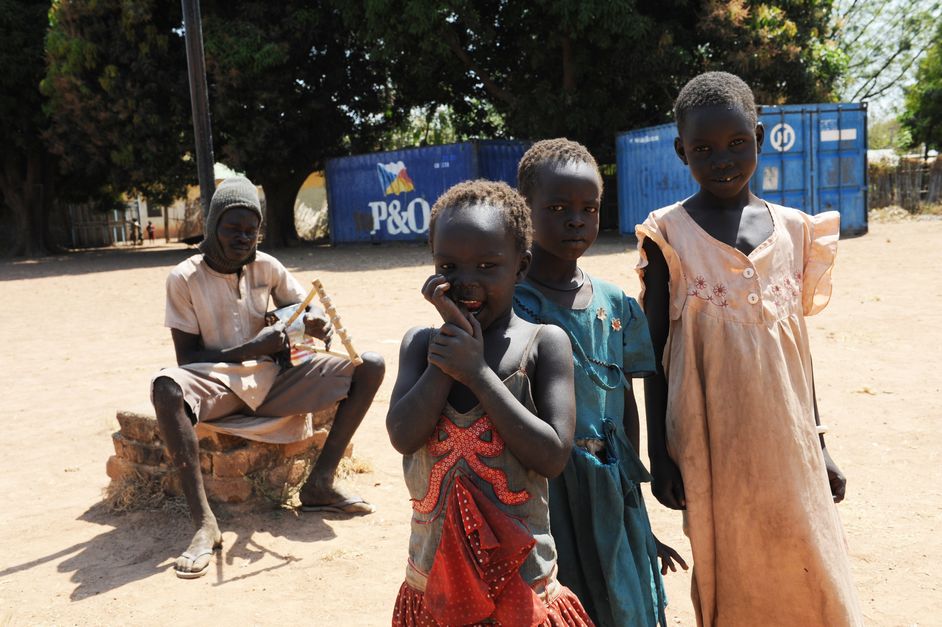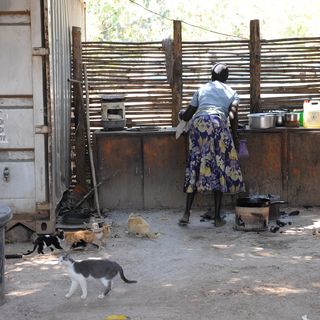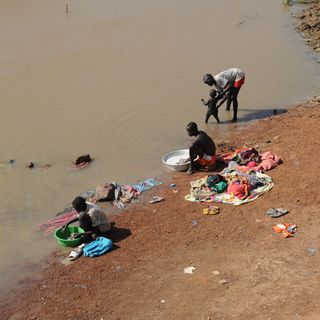2005: Tonji, South Sudan
Once I had managed to step inside, at first I could see nothing at all in the darkness. After my eyes had gotten used to the darkness if discovered that there was a bed made of bamboo sticks in the corner. It was frustrating and sad that I would have to treat patients in this frightful place.”
For decades people in Sudan suffered from a humanitarian crisis and from a civil war which took over two million victims. Hunger and illness, in addition to the military conflicts, are the worst threats to the inhabitants of this unbelievably impoverished country. Officially, the civil war was ended in July 2011 with a peace agreement, but the social problems remain.
In order to help the local people the Korean doctor and priest Tae-Suk Lee travelled to Tonji in the southeast in 2002, where he supported a Salesian order project. This project, which is supported by the St. Lazarus-Fonds Europe, was launched 10 years ago and has produced remarkable results. These include a school for about 500 children and an infirmary which deals with 150 to 200 sufferers daily.
Dr. Lee on his arrival in Tonji: „On my arrival a Salesian employee showed me a hut and led me through the so-called practice. A glance at the practice hut was indescribable. The walls were put together with clay and bamboo sticks, and the entrance was so low that I had to bend 90°. Once I had managed to step inside, at first I could see nothing at all in the darkness. After my eyes had gotten used to the darkness if discovered that there was a bed made of bamboo sticks in the corner. It was frustrating and sad that I would have to treat patients in this frightful place.”
From the outside the infirmary looks like a normal village today, because the relatives of the stationary patients simply move there to live with the ill. Most of the patients have leprosy and some can hope to be healthy again. Dr. Lee relates: “I started to intensify my efforts with the lepers and to make their daily life easier. Unfortunately, for some the help comes too late. They have already lost fingers or toes and have been blind so long that they cannot live without help from others.” Thanks to the assistance project and the efforts of Dr. Lee many people now know that leprosy can be healed and that rotten or lost limbs due to this disease are now part of the past. If there were more such infirmaries the leprosy cure rate would be significantly improved. Due to insufficient financial means there is not enough of even the simplest medicine and instruments. Often there is only comforting words and the helpless accompaniment of relatives to offer the lepers. “Small children are particularly susceptible to skin disease and leprosy” the priest explains, and points to a small girl whose head is full of ulcers. “Many people here have such skin diseases, though actually treatment would be simple. They only need to be treated with antibiotics and the wounds cleaned regularly.


